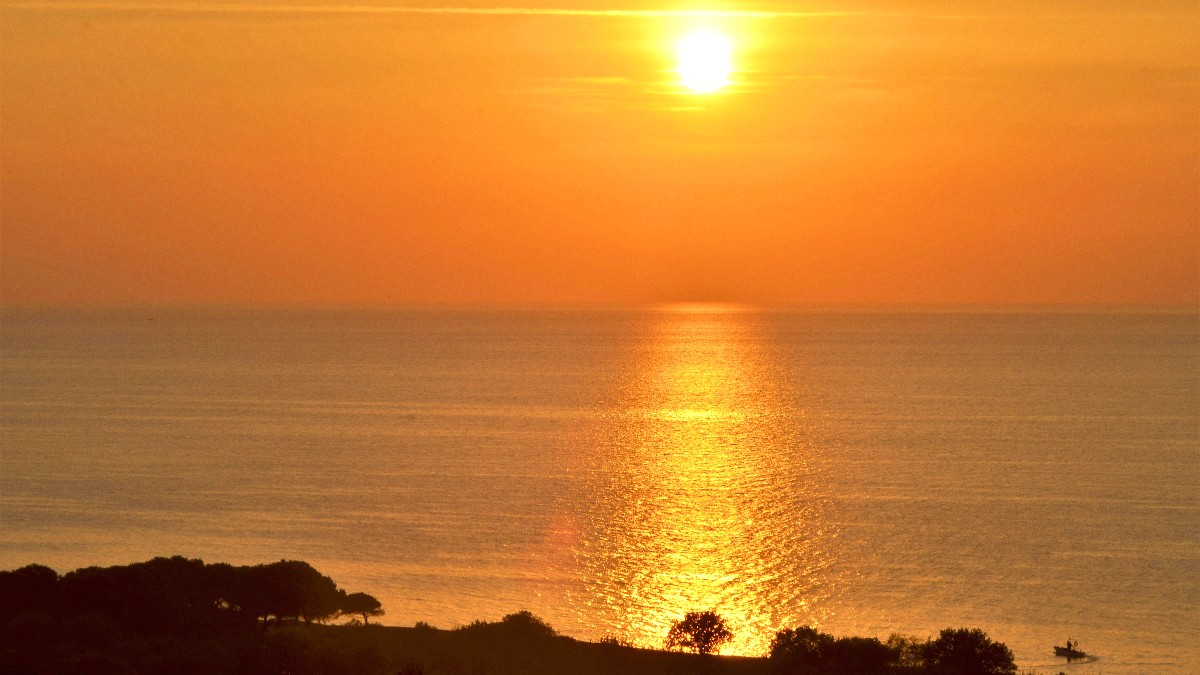
Aegean Coast, Turkey
Summer (June-August): Average temperatures range from 25°C to 30°C (77°F to 86°F). Temperatures occasionally reach 35°C (95°F) or higher. Precipitation during this period is minimal. Humidity levels are moderate. The days are long and sunny.
Spring (April-May) and Autumn (September-October): Average temperatures are between 15°C and 25°C (59°F and 77°F). These seasons experience moderate precipitation. Humidity levels vary, generally remaining comfortable. Spring brings blooming wildflowers. Autumn offers clear skies and pleasant light.
Average temperatures hover between 5°C and 10°C (41°F and 50°F). Occasional dips below freezing are possible. Winter has higher precipitation, and sometimes includes light snow.
The sea is too cold for swimming.
Crowds and higher prices.
Warm and sunny weather, all tourist services at full capacity.
Attractions are crowded, prices for flights and accommodation increase, intense heat for outdoor exploration.
Pleasant temperatures, fewer crowds.
Pleasant temperatures for sightseeing, fewer crowds, moderate prices, blossoming landscapes in spring.
Sea may be cooler for swimming, some seasonal businesses may have limited hours.
Fewer tourists, lower prices.
Significantly fewer tourists, lower prices for accommodation and services, more authentic local experiences.
Cold and wet weather, shorter daylight hours, some attractions may close or have reduced hours, sea too cold for swimming.
Prepare for potential heatwaves in summer. Staying hydrated and wearing sun protection are good ideas.
Occasional heavy rain and, rarely, snow can impact travel plans and visibility at outdoor sites in winter. Monitor local weather forecasts.
Shoulder seasons (April-May, Sep-Oct) offer comfortable temperatures for extensive walking tours.
High season (June-August) has warm sea temperatures and full ferry schedules.
Shoulder seasons balance good weather and fewer crowds.
Autumn provides warm, golden light.
Spring brings blooming wildflowers across the landscape.
Requirements vary by your nationality. Obtain the correct documentation before travel.
Many nationalities need an eVisa for tourism. This electronic visa is obtained online before travel. The process is typically straightforward and quick.
Ensure you have all necessary documents ready for immigration upon arrival.
Prices vary based on your travel style.
Here's a breakdown of estimated daily costs for different travel styles.
Budget Traveler Daily Costs: ₺800 - ₺1500 (approx. $25 - $45 USD)
Accommodation: Expect hostel dorm bed or budget guesthouse (₺250-₺500 per night). Meals: Rely on street food, local lokantas (canteens), or small, inexpensive eateries (₺150-₺300 per meal). Transportation: Mainly use public transport like dolmuş and city buses (₺30-₺100 per day). Attractions: Focus on free sites or those with low entry fees (₺0-₺150 per day).
Per night for a double room:
Hostel dorm bed: ₺250-₺500 / Budget guesthouse/hotel: ₺500-₺1000
Mid-range hotel: ₺1000-₺2500 / Luxury hotel: ₺2500+
Per person:
Street food (simit, döner): ₺50-₺150 / Local lokanta (full meal): ₺150-₺300
Mid-range restaurant (dinner): ₺300-₺700 / Fine dining: ₺700+
Per person:
Local dolmuş/bus ride: ₺15-₺30 / Ferry (Canakkale-Eceabat): ₺25-₺50
Troy Ancient City: ₺600 / Canakkale Naval Museum: ₺300 / Gallipoli Battlefields: Free entry to most memorials.
| Category | Customary Tip | Notes |
|---|---|---|
| Restaurants | 5-10% | If service charge not included; 15% for excellent service. |
| Taxis | Round up or ₺10-₺20 | For good service, round up the fare. |
| Hotel Staff | ₺50-₺100 | For bellhops or housekeepers. |
Your well-being remains a top priority during travel. Canakkale is a safe destination, but understanding local health and safety considerations supports your trip.
No specific vaccinations are required for entry to Turkey for most travelers. Verify current requirements closer to your travel date.
Ensure your routine vaccinations are current (MMR, DTP, Polio). Healthcare professionals often suggest Hepatitis A and B, and Typhoid. Consult a healthcare professional 4-6 weeks before your trip.
A travel clinic can give personalized advice based on your itinerary and health history.
Prevention is good practice.
Traveler's Diarrhea: Drink only bottled water. Avoid unpeeled fruits and raw vegetables that might have been washed in tap water. Food should be well-cooked and served hot. Wash hands frequently.
Sunburn & Dehydration: Use high-SPF sunscreen regularly. Wear protective clothing (wide-brimmed hats, light, long-sleeved shirts). Drink plenty of bottled water.
Insect Bites: Mosquitoes can be present, especially near water or in evenings. Use insect repellent. A mosquito net is rarely necessary in standard hotels.
Canakkale has public and private hospitals. Public hospitals usually ask for upfront payment for non-residents without travel insurance. Private hospitals often have higher standards of care and English-speaking staff. Private clinics handle non-emergency medical needs.
Pharmacies are widely available (red 'E' sign). Pharmacists offer advice for minor ailments and dispense many medications without a doctor's prescription.
The general emergency number for ambulance, police, and fire services in Turkey is 112.
Canakkale is generally considered a safe city for tourists. Crime rates are low.
Drinking Water Safety: Tap water in Canakkale is generally not safe for drinking. Bottled water is widely available and highly recommended.
Food hygiene standards vary. Choose busy eateries with high customer turnover. Exercise caution with uncooked or undercooked items.
Travel insurance is highly recommended. A comprehensive policy covers medical emergencies, evacuation, trip cancellation, and lost luggage. Consider World Nomads, SafetyWing, or Insubuy.
General Emergency: 112. Keep contact details for your country's embassy or consulate. Inform family or friends of your itinerary.